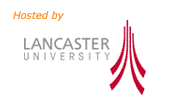Mission Statement
Historically a source of cultural and economic dynamism, the circulation of people, objects, ideas and ways of life across the Mediterranean has taken a new edge with current global geopolitical and geo-economic processes. In the midst of this greater connectivity and fluidity of exchanges the Mediterranean re-emerges as a hotspot for international conflicts. Analysts predict a deterioration of political stability in the region in the coming decades due to, inter alia, acute environmental degradation, scarcity of fossil fuels, and growing structural economic and demographic disjunctures between Europe, the Maghrib and sub-Saharan Africa. Understanding these challenges in an age of globalisation requires theoretical and methodological tools that account for the increasingly transnational nature of social, political, economic and environmental processes and the role of digital and mobile technologies in the emergence and pattering of social and political life in the Mediterranean.
mediterranean mobilities looks at the region in innovative and critical ways that highlight its transnational complexity and aims at generating and disseminating policy relevant intelligence on Mediterranean mobilities in the 21st century, especially in relation to issues of critical cosmopolitanism and sustainability. Of particular interest for mediterranean mobilities are transnational initiatives such as the ill fated Barcelona Process: Union for the Mediterranean and the United Nations Blue Plan for Development and the Environment in the Mediterranean.
Specific aims of mediterranean mobilities:
- To raise awareness about the interconnectedness and interdependence of peoples and places across the Mediterranean, now, historically and in the future;
- To promote comparative, postdisciplinary and historically sensitive research on Mediterranean mobilities;
- To enrich mobilities research with Mediterranean concerns, problems and experiences;
- To liaise with existing networks and organise and contribute to seminars, conferences and symposia nationally and internationally;
- To bring together academics, practitioners and policy-makers;
- To serve as a centre for exchanging information between civil society actors and the academia;
- To support research students in the UK with an interest in the Mediterranean.
Read more about mobilities as an academic perspective.
mediterranean mobilities supports 'slow science'.
THE SLOW SCIENCE MANIFESTO
We are scientists. We don’t blog. We don’t twitter. We take our time.
Don’t get us wrong—we do say yes to the accelerated science of the early 21st century. We say yes to the constant flow of peer-review journal publications and their impact; we say yes to science blogs and media & PR necessities; we say yes to increasing specialization and diversification in all disciplines. We also say yes to research feeding back into health care and future prosperity. All of us are in this game, too.
However, we maintain that this cannot be all. Science needs time to think. Science needs time to read, and time to fail. Science does not always know what it might be at right now. Science develops unsteadily, with jerky moves and unpredictable leaps forward—at the same time, however, it creeps about on a very slow time scale, for which there must be room and to which justice must be done.
Slow science was pretty much the only science conceivable for hundreds of years; today, we argue, it deserves revival and needs protection. Society should give scientists the time they need, but more importantly, scientists must take their time.
We do need time to think. We do need time to digest. We do need time to misunderstand each other, especially when fostering lost dialogue between humanities and natural sciences. We cannot continuously tell you what our science means; what it will be good for; because we simply don’t know yet. Science needs time.
—Bear with us, while we think.




| Home | Mission
Statement | About Us | Networks
| Seminar Series | Events
|
| News |
Critical Mobilities | Contacts |

